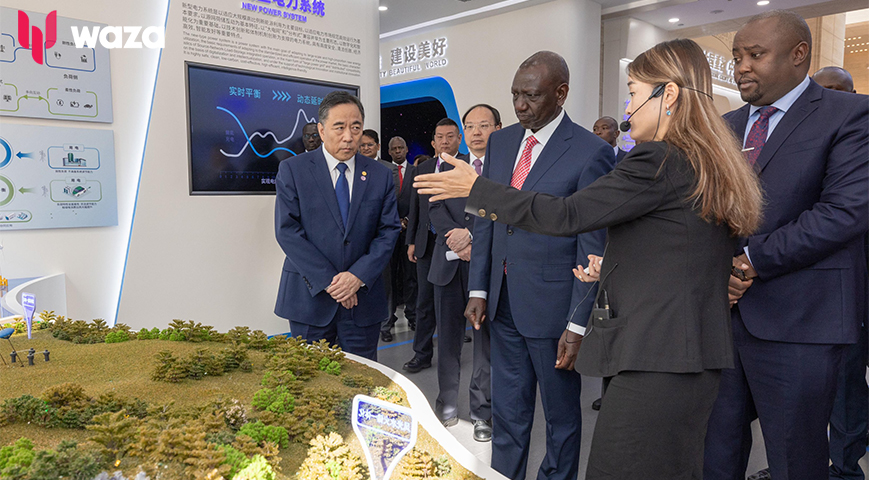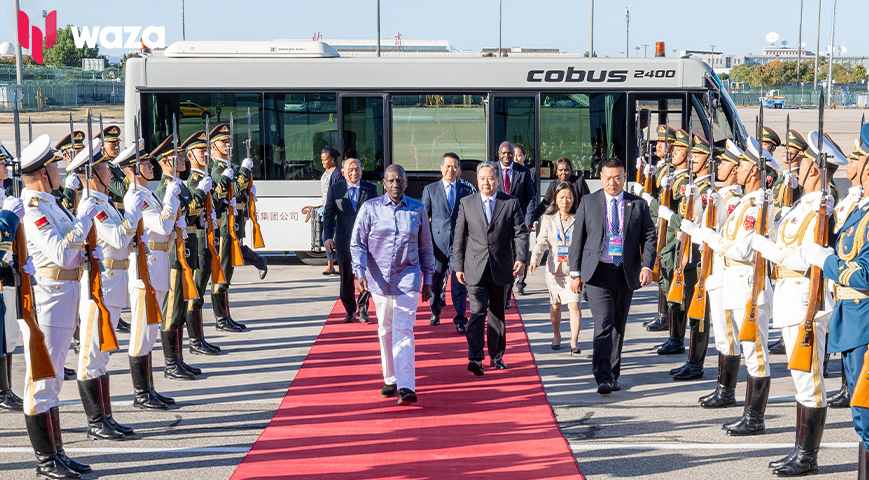Beijing's Belt and Road Initiative has drawn flak for piling up massive debt for developing nations and harming the environment. Still, supporters applaud it for delivering resources and economic progress to the Global South.
AFP examines some of the major concerns surrounding the significant infrastructure project as delegates from 130 nations assemble in Beijing for a meeting to commemorate the project's tenth anniversary:
Debt, opaque costs
Beijing claims to have signed contracts worth more than two trillion dollars worldwide as part of the Belt and Road Initiative, a significant project in President Xi Jinping's effort to increase China's influence abroad.
High-speed train lines have been installed throughout Southeast Asia as part of its most well-known initiatives. At the same time, extensive transport, energy, and infrastructure projects have been carried out throughout Central Asia.
Did you read this?
Arrived in Beijing, China, for the Third Belt and Road Forum for International Cooperation whose theme is “High-quality Belt and Road Cooperation: Together for Common Development and Prosperity." pic.twitter.com/hYzviD80QN
— William Samoei Ruto, PhD (@WilliamsRuto) October 15, 2023
However, the vast debts that participating nations have to pay off are the negative side of the massive infrastructure spending.
This month, China claimed that BRI partners owed the Export-Import Bank of China more than $300 billion.
Additionally, BRI countries were particularly hard struck by the Covid-19 outbreak as rising inflation and interest rates made it challenging to pay back debts.
Critics have also cited the projects' opaque pricing, a factor in nations like Malaysia and Myanmar renegotiating their BRI contracts to reduce costs.
Most tasks at infrastructure projects are performed by Chinese laborers, who send their income home rather than spending it in nearby companies, which has angered residents of BRI nations.
According to a joint report released this year by the World Bank and other organizations, China has been compelled to give billions of dollars in bailout loans to BRI countries in recent years to enable the countries to prolong their loans and remain sustainable.
- Chinese influence -
The BRI has served as a diplomatic tool for enhancing China's position as the global South's leader and enabling Chinese infrastructure companies access to numerous rising economies.
Leveraging China's technology will enhance our renewable energy production and position Kenya favourably for investment as the world transitions to renewable energy because of climate change. pic.twitter.com/fYl6rk5xbZ
— William Samoei Ruto, PhD (@WilliamsRuto) October 16, 2023
This has increased worries that China is attempting to remake the international system to its favor, particularly in Western countries. Opposition voices in BRI countries have also criticized the growing Chinese influence in local affairs.
Washington has cautioned that China may use the program as a cover to establish military outposts worldwide to defend BRI investments.
- Environmental concerns -
The plan has come under fire for its significant environmental impact and the way that large infrastructure projects harm the environment.
Researchers from China, the United States, and the United Kingdom cautioned in 2019 that constructing megaports, pipelines, trains, and motorways could make achieving the Paris climate goals impossible.

In the meantime, a report by experts at Boston University's Global Development Policy warned that Chinese-led challenging infrastructure projects carry higher risks to indigenous lands and ecosystems due to the nation's "relative newcomer status in global development finance and its early stages of developing environmental and social risk management due diligence policies and procedures."
China has sought to allay environmental fears, promising 2021 not to build new coal power plants abroad, though many previously agreed projects are still in progress.
- Economic benefits -
China insists that the BRI offers "high-quality development" to its partner nations, saying that while Western programs provide temporary assistance to the Global South, Beijing offers possibilities with long-term, enduring effects.
The BRI's contribution to "additional resources for the Global South" and "significant economic growth" was underlined by Boston University scholars.
Renewable energy is the definite power source for the future of humanity. pic.twitter.com/knJtOgyy2C
— William Samoei Ruto, PhD (@WilliamsRuto) October 16, 2023
"Chinese overseas development finance has been much more focused on industrial and infrastructure lending," they stated.
"Chinese finance is thus more associated with economic growth, addressing infrastructure bottlenecks and increased energy access."
According to the World Bank, BRI transportation initiatives, such as highways and railways, "significantly improve trade, foreign investment, and living conditions for citizens in participating countries."
According to the World Bank, if fully implemented, BRI transportation projects could increase global revenue by 0.7 to 2.9 percent.









